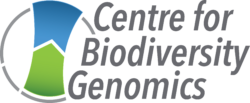Equity, Diversity, and Inclusion
Our diversity in experience and perspective strengthens creativity and innovation while improving decision making and results
Our People
Our Practices
The CBG has established an Equity, Diversity, and Inclusion Committee to support realization of the goals stated in its EDI Policy. This Committee oversees the EDI framework and ensures that organizational policies are fully implemented. The goal is to create an inclusive work culture where every individual feels safe, respected, included, and encouraged to contribute, and where everyone experiences a sense of belonging and thrives. We recognize that, due to systemic factors, some members of the Canadian community experience barriers to education, employment, and full participation. The CBG strives to contribute to the reduction of these barriers.
University of Guelph Links
Office of the President
University Secretariat
The Office of Diversity & Human Rights
- The Human Rights Policy Document
- Code of Ethical Conduct Policy and Advisory Group
- Accessibility at the University of Guelph
- Fostering a Sense of Belonging in Times of Crisis and Challenge
- Positive Space Project Training Module
- Principles of Belonging: Anti-Oppression and Anti-Racism online training module
Indigenous Initiatives
Land Acknowledgement
These kinds of relationships require careful cultivation and recognition that they will evolve over time. We re-affirm our commitment to learn to be humble and to continue this journey in a good way.
We acknowledge that the Centre for Biodiversity Genomics resides on the treaty lands and territory of the Mississaugas of the Credit. We uphold the significance of the Dish with One Spoon Covenant and the continuing relationship our Indigenous neighbours have with this land. We recognize that today this gathering place is home to many First Nations, Métis and Inuit peoples and acknowledging them reminds us of our relationships to this land where we learn and work.
We would also like to acknowledge the traditional territories of Indigenous Peoples around the world, their right to self-determination and sovereignty and their relationships to all aspects of creation since time immemorial. We acknowledge the diversity of Indigenous Nations, territories, and communities and each of their unique relationships to land. Through our collective work, we acknowledge with great respect and give voice to all life on planet Earth and honour the sacred relationships between people, nature, and biodiversity.
We are committed to honouring and upholding the 46 articles of the UN Declaration on the Rights of Indigenous Peoples. We will engage with a variety of Indigenous knowledge holders to ensure a diversity of perspectives.

